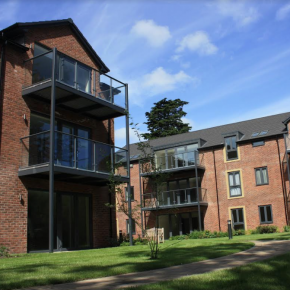
Neaco: Building Safety Act signals stricter oversight with widespread implications
Having been criticised for failing to protect leaseholders in the first few years that followed Grenfell, the government has decisively changed its stance and is now taking robust action in favour of residents. The following article comes from Neaco…
In October 2022, the government announced the first step in legal action against a building owner over failure to fix unsafe cladding. The freeholder in question is one of the first to face action by the newly created Recovery Strategy Unit, set up to identify and pursue firms who repeatedly refuse to fix buildings.
The current challenges in the economy will not be considered an admissible excuse for any further delay in remediation. Having been reappointed as communities secretary, Michael Gove signalled his determination to resolve safety issues, saying that it ‘cannot be the case that economic conditions, which affect us all, are being used by developers, or anyone else, to shuffle off their obligations’.
“There are some freeholders – organisations of significant means – that are, again, trying to delay or dilute their responsibilities. That is simply not acceptable,” Gove added.
The government has made its long-term intentions clear with the introduction of the Building Safety Act ushering in a new era of stricter oversight, with widespread implications.
According to the government, it ‘will place legal responsibilities on those who commission building work, participate in the design and construction process and those who are responsible for managing structural and fire safety in higher-risk buildings when they are occupied. These people will be called dutyholders during design and construction, and Accountable Persons when the building is occupied’.
Building Safety Regulator
Residents will have greater power to hold developers to account and tougher sanctions will be imposed on those who compromise safety. A new Building Safety Regulator will drive the reform and oversee ‘safety and performance of all buildings’ including a new regulatory regime for higher-risk buildings. The regulator will also support and promote competence among the built environment industry, and registered building inspectors.
Organisations and individuals in the construction and property sectors will be keen to make sure they are meeting their legal responsibilities when the legislation comes into effect. As the central cause of the Grenfell tragedy, cladding has received the most scrutiny in the past five years.
Building Regulations introduced in 2018 banned the use of combustible materials in external wall systems over 18m in height, but it is often overlooked that the same legal requirements apply to balconies. Like cladding, balcony components require a minimum A2 rating under the Euroclass fire safety classification which is referenced in current regulations.
Euroclass
Many existing residential buildings feature balcony elements such as flooring which do not meet the Euroclass A1 (non-combustible) or A2-s1, d0 (limited-combustible) rating necessary to meet compliance. Common materials such as composite decking and wood are no longer considered safe, but in many cases they have not yet been replaced.
Given the lack of attention and discussion afforded to balconies in comparison to cladding, the upgrading of non-compliant balcony materials is likely to have progressed even slower than the much-criticised cladding replacement programme.
Sporadic incidents continue to remind us that the problem has not been fully addressed. At the time of writing (December 2022), last month alone there were reported outbreaks of fire on balconies at high-rise buildings in Edinburgh and Roehampton.
A solution has emerged which makes the process of meeting compliance straightforward: aluminium has now become the material of choice for decking and other balcony components such as railing or stanchions. Uncoated aluminium is A1 rated and coated aluminium is A2 rated, subject to correct application by the manufacturer.
Neaco’s offering
This versatile metal offers a wide range of additional benefits, including an ability to accommodate bespoke-engineered features such as anti-slip surfaces. One third of the weight of steel yet high in load-bearing capacity, Neaco’s modular Neatdek aluminium decking requires less supporting steelwork, which significantly reduces costs and installation time.

It also offers outstanding sustainability credentials including 100% recyclability, zero corrosion and a recognised design life of at least 60 – 100 years.
Neaco’s range of architectural products includes A1 rated Neatdek aluminium decking and A2 rated Neatdek aluminium decking in a range of coated finishes. We also supply modular balconies which are fully compliant with all relevant Building Regulations.
Latest news

25th March 2025
Reduce sound transference with West Fraser CaberAcoustic
CaberAcoustic from West Fraser is a highly versatile, effective and economical sound-reducing flooring solution. Reducing both impact and airborne transmitted sounds, it can be laid over concrete and timber floors in both new and existing buildings.
Posted in Acoustics, Noise & Vibration Control, Articles, Building Industry News, Building Products & Structures, Building Services, Building Systems, Facility Management & Building Services, Floors, Interior Design & Construction, Interiors, Posts, Restoration & Refurbishment, Retrofit & Renovation, Timber Buildings and Timber Products
25th March 2025
Vent-Axia Kicks Off Charity Football Tournament in Support of Cancer Research UK
Ventilation leader Vent-Axia brought together leading building design professionals for an action-packed Charity Powerleague 5-a-side Football Tournament on Thursday 20th March in Shoreditch, London, in aid of Cancer Research UK.
Posted in Air Conditioning, Articles, Building Industry Events, Building Industry News, Building Products & Structures, Building Services, Charity work, Facility Management & Building Services, Heating, Ventilation and Air Conditioning - HVAC
25th March 2025
Jane Elvins bolsters GEZE UK Specification team
GEZE UK, a leading manufacturer and provider of door, window and access control systems, is delighted to welcome Jane Elvins, who joins as Specification and Business Development Manager.
Posted in Access Control & Door Entry Systems, Architectural Ironmongery, Articles, Building Industry News, Building Products & Structures, Building Services, Doors, Facility Management & Building Services, Recruitment, Retrofit & Renovation, Security and Fire Protection, Windows
24th March 2025
Putting Glidevale Protect in the frame at InverTay Homes development
Leading building products manufacturer Glidevale Protect is supplying its construction and roofing membranes for a new timber frame housing development currently being constructed by InverTay Homes in Dundee.
Posted in Articles, Building Industry News, Building Products & Structures, Building Services, Building Systems, Case Studies, Facility Management & Building Services, Membranes, Restoration & Refurbishment, Retrofit & Renovation, Roofs, Sustainability & Energy Efficiency, Timber Buildings and Timber Products, Walls
 Sign up:
Sign up: